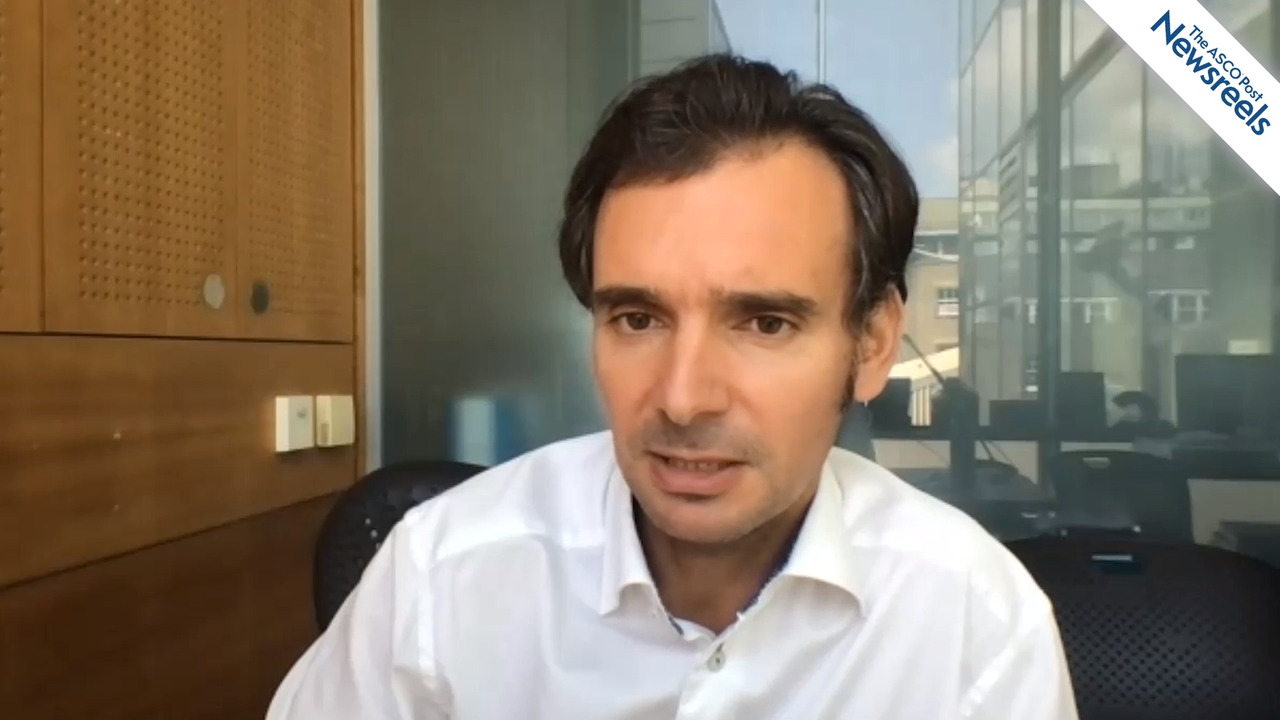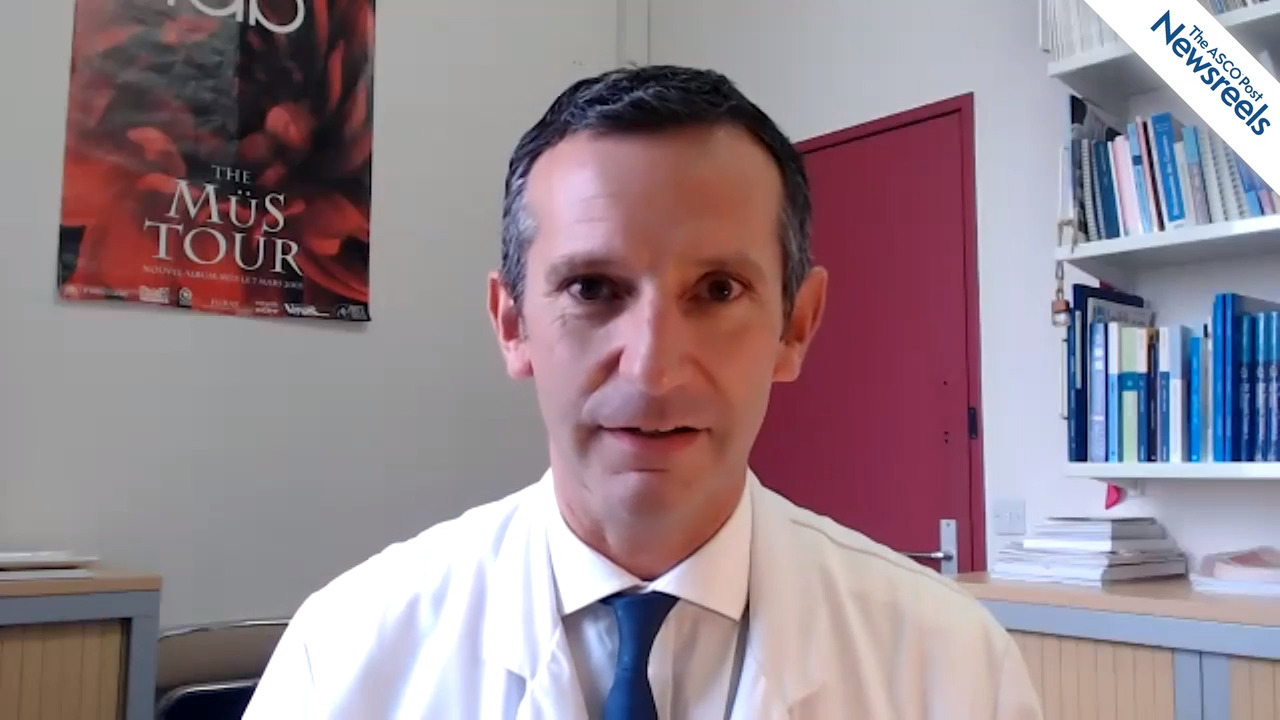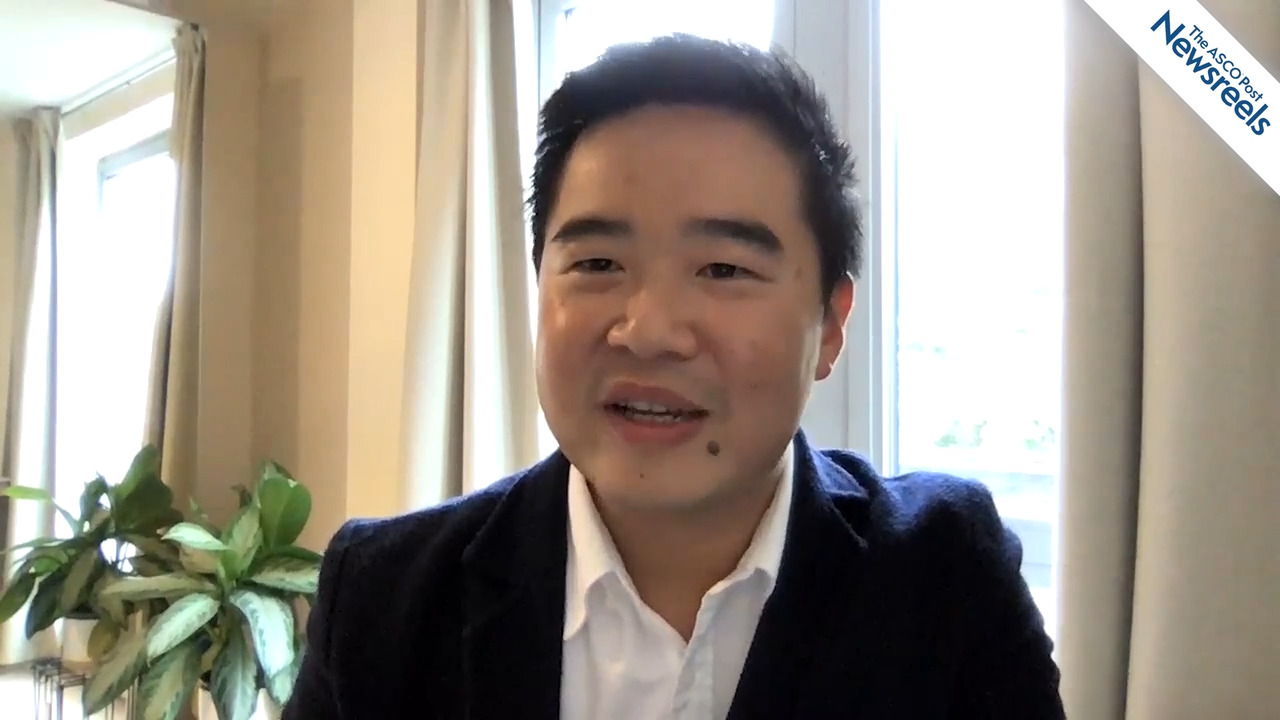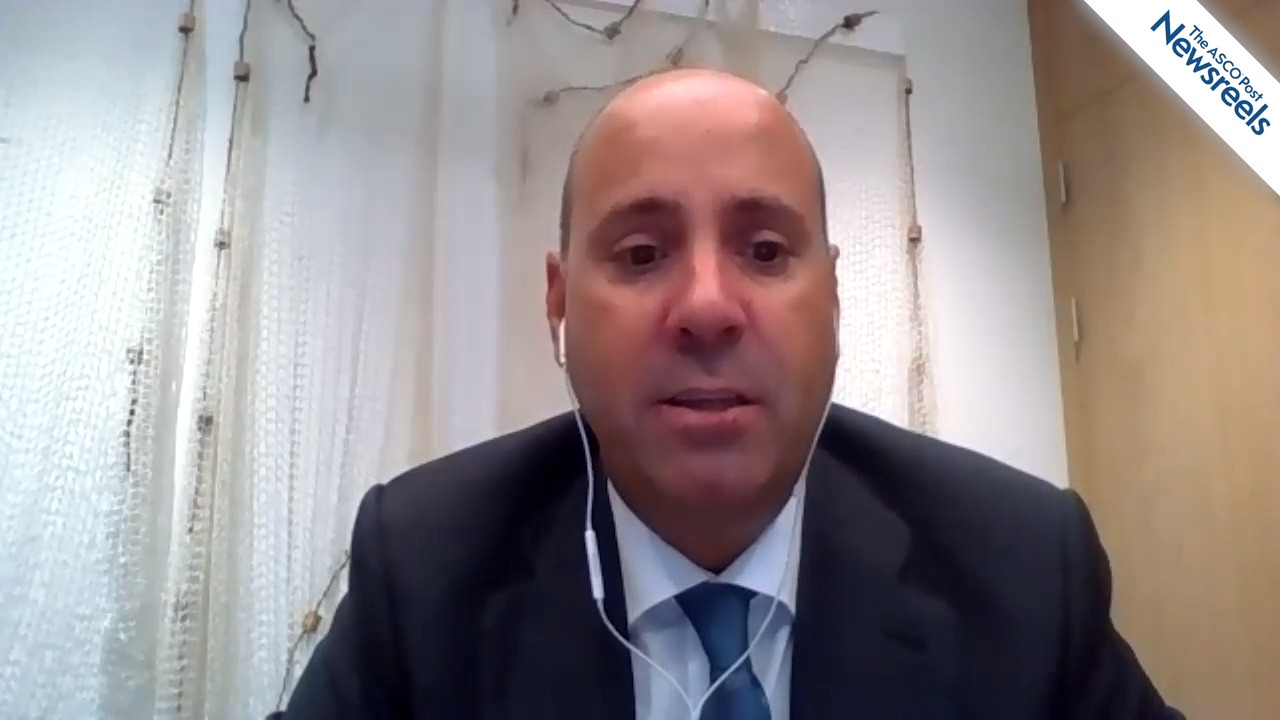Joseph M. Unger, PhD, on the Impact of NCI-Sponsored Treatment Trials
ESMO Congress 2021
Joseph M. Unger, PhD, of Fred Hutchinson Cancer Research Center, discusses findings from his study of the National Cancer Institute’s Clinical Trials Network, which has conducted publicly funded cancer research for more than 50 years. The substantial gains in life years for patients with cancer, he says, supports the critical role of government-sponsored cancer research (Abstract 1503O).
The ASCO Post Staff
Susana N. Banerjee, MBBS, PhD, of The Royal Marsden NHS Foundation Trust, discusses phase II results of the EORTC-1508 trial, the first study to combine an anti–PD-L1 antibody, atezolizumab, with bevacizumab and the COX1/2 inhibitor acetylsalicylic acid as treatment for patients with ovarian, fallopian tube, or primary peritoneal adenocarcinoma (Abstract LBA32).
The ASCO Post Staff
Gerhardt Attard, MD, PhD, of The Royal Marsden NHS Foundation Trust, discusses findings that show 2 years of abiraterone acetate plus prednisolone-based treatment improves metastasis-free and overall survival in men with high-risk nonmetastatic prostate cancer. The data suggest this combination regimen might be considered a new standard of care (Abstract LBA4).
The ASCO Post Staff
Benjamin Besse, MD, PhD, of the Institut Gustave Roussy, discusses final phase III findings from the Atalante-1 trial, which explored the question of whether the OSE2101 vaccine is more beneficial than standard treatment for patients with HLA-A2–positive non–small cell lung cancer after immune checkpoint inhibitors are no longer effective (Abstract LBA47).
The ASCO Post Staff
Jonathan Lim, MBBS, MRCP, of Christie NHS Foundation Trust and the Francis Crick Institute, discusses results of an ESMO survey, which showed that the risk of poor well-being, distress, and burnout has continued to rise since the onset of the COVID-19 pandemic, despite improved job performance and sustained resilience. Those most at risk, he says, are women aged 40 years and younger (Abstract 561O).
The ASCO Post Staff
Javier Cortés, MD, PhD, of Barcelona’s IOB Institute of Oncology, discusses phase III data from the DESTINY-Breast03 study, which support trastuzumab deruxtecan becoming the standard of care for second-line treatment of women with HER2-positive metastatic breast cancer (Abstract LBA1).





